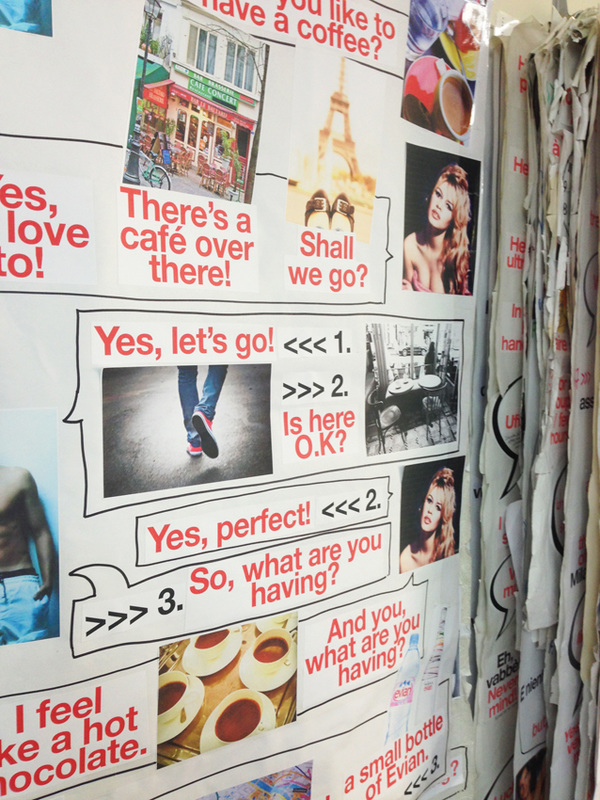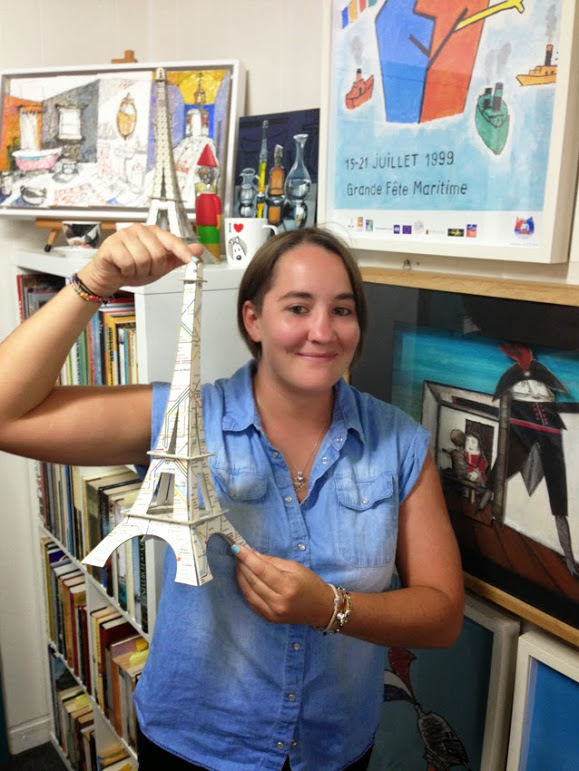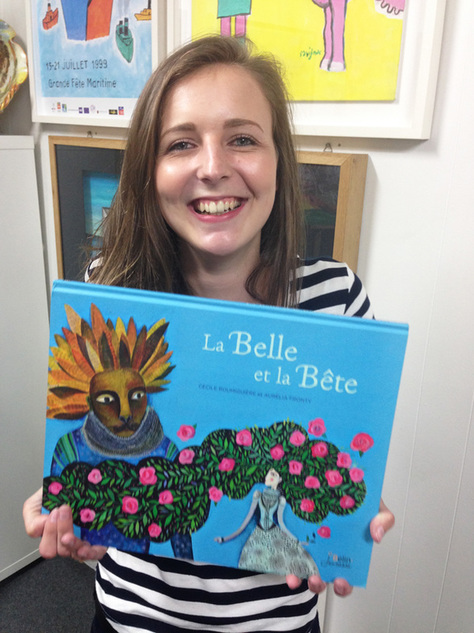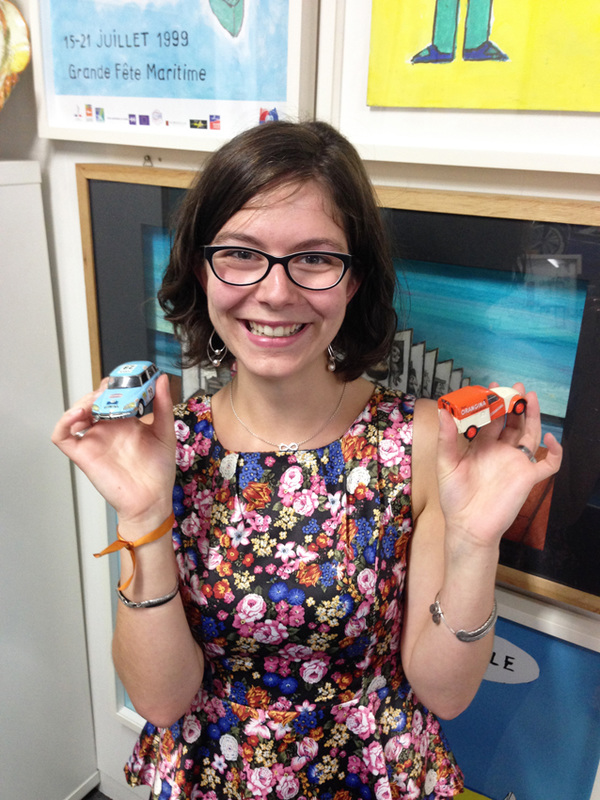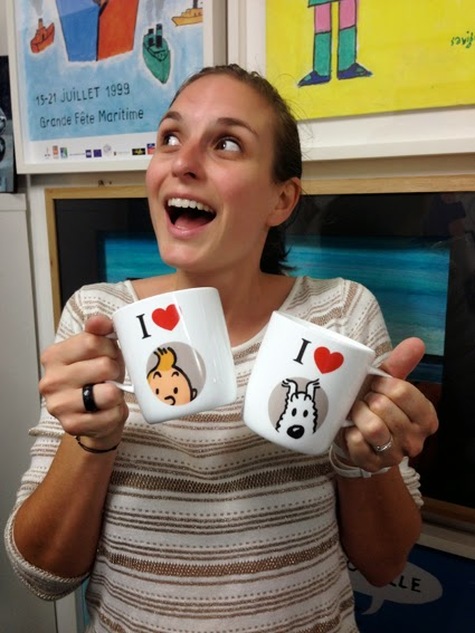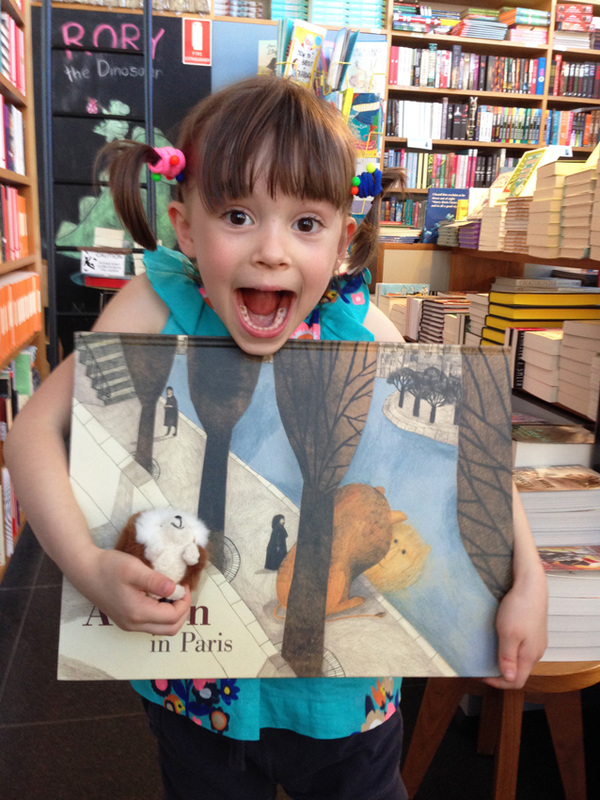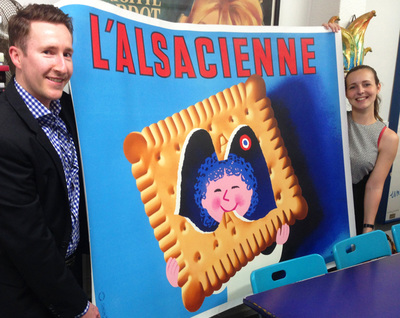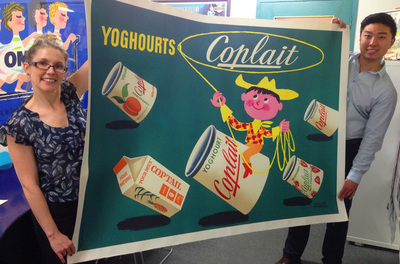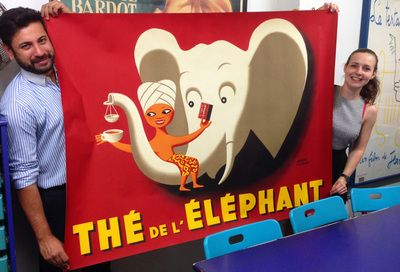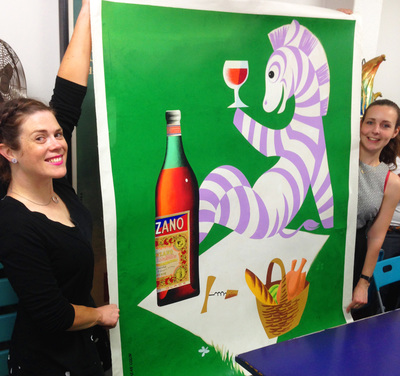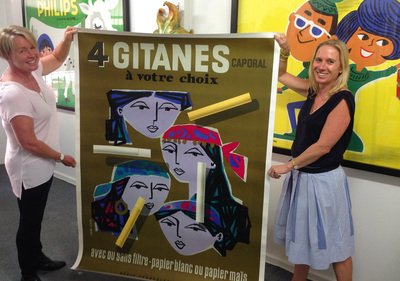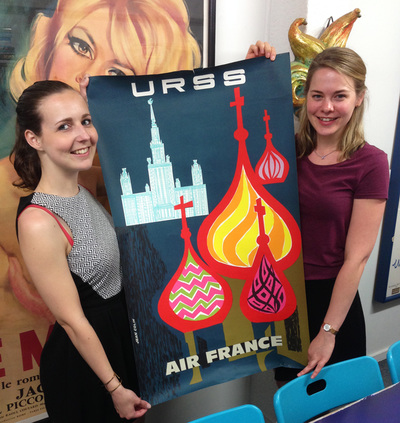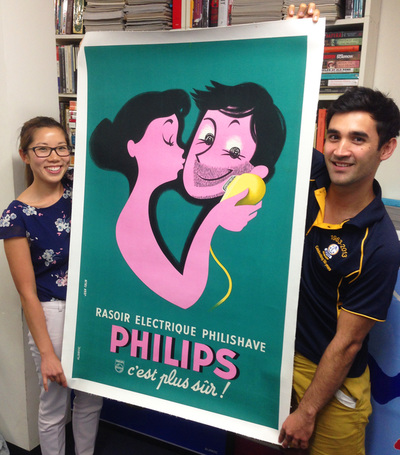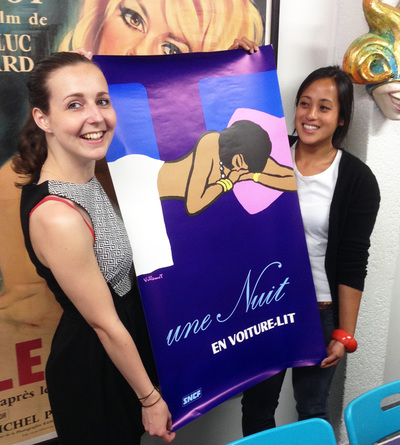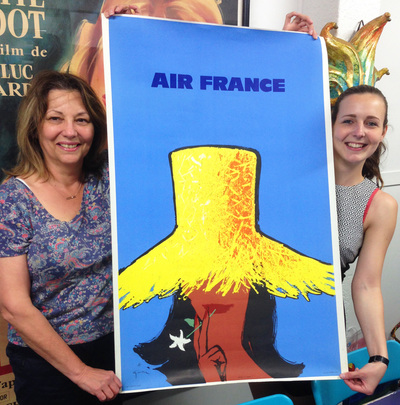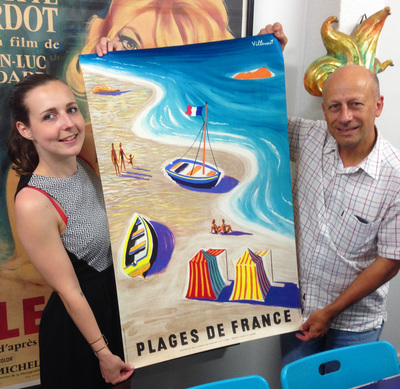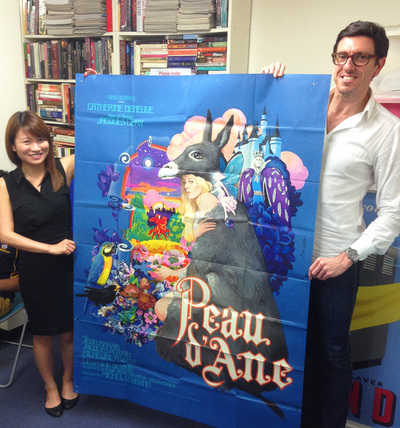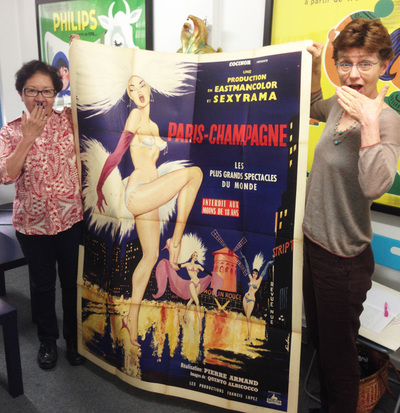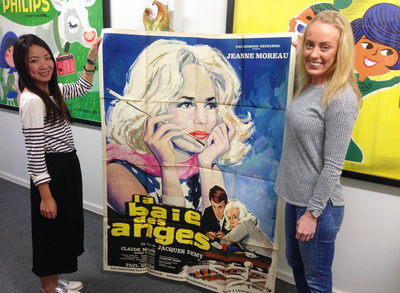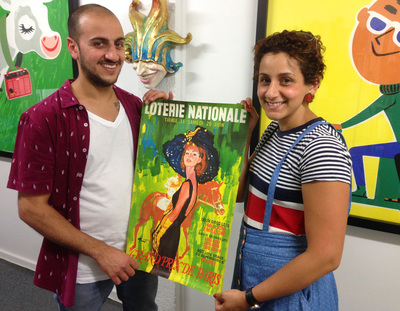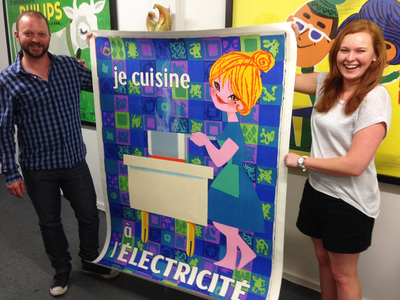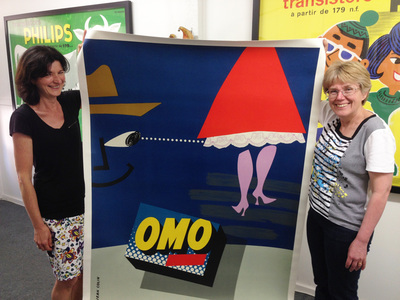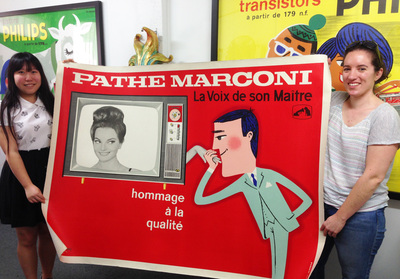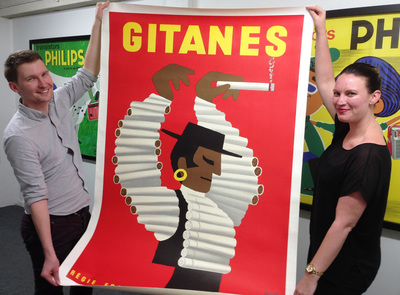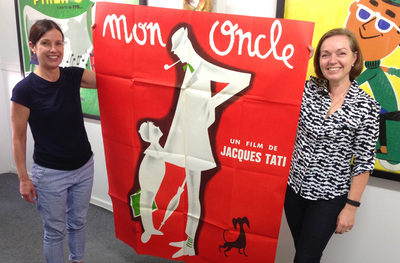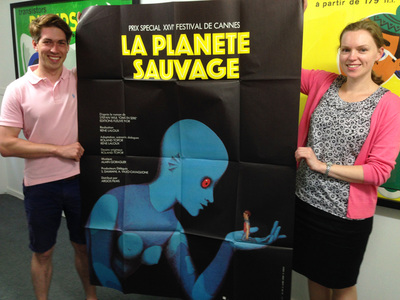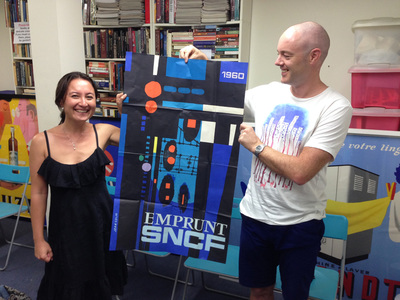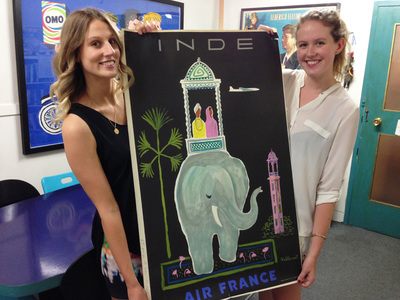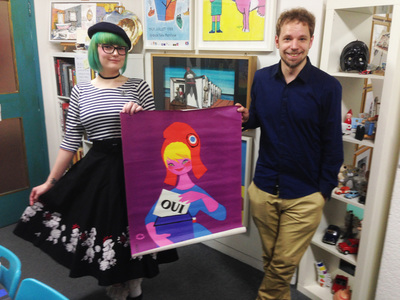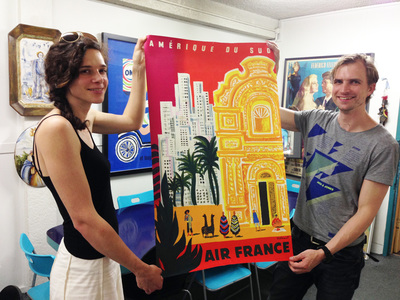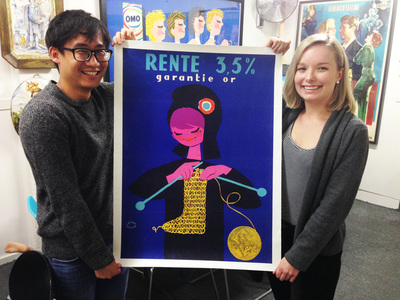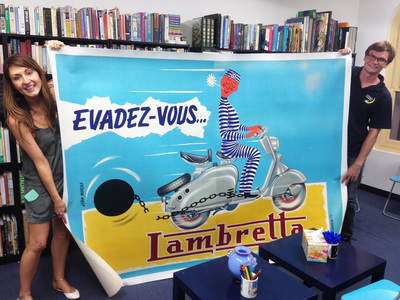French lessons Sydney French centre for language
At the French Centre for Language and Cultural Studies, which is located at 32 York Street in the very heart of Sydney's CBD (find us on Google Maps), we've been offering French language courses for adults, ranging from French for beginners to advanced French throughout the year, since 1999. Our French lessons are conducted in a friendly, convivial, richly French enviroment that inspires and infuses the students, and the teachers too. So, if you want to learn French from A to Z, or you simply want to learn some French before heading to France, with like-minded fellow students whose contagious enthusiasm for all things French and zest for life turn each lesson into a gathering of friends rather than a formal class, then there's a learning experience waiting for you at the French Centre for Language and Cultural Studies. Join our French classes in Sydney today and be surprised at how much you will learn, and how much fun it is to speak and learn French!
The Centre:
Down to the Lower Ground floor, along the corridor and into France. The French Centre is like a microcosm of France. Brigitte Bardot, Jean Colin, Hervé Morvan, Raymond Savignac, Godard, Truffaut, Jeanne Moreau, Amelie, etc., cinema, music, art, design combine to create a bright, humourous, richly French enviroment that inspires and infuses the students, and the teachers too. What does the French Centre look like? Take a peak!
Our approach to teaching:
|
At the French Centre each lesson is based on a real life dialogue, a real life French text relating to the dialogue, and a cultural segment.
The dialogues deal with both practical topics - like ordering in a bar or a restaurant, asking for directions, buying tickets and catching public transport - and conversational topics - like talking about yourself, asking people about themselves, inviting people out, talking about your and someone else’s experiences, likes and dislikes, opinions, films, travel plans, describing people and places, and so on. The real life French texts range from train timetables or restaurant menus, to newspaper or magazine articles, website pages, extracts from the French television news, French movies, documentaries, books, etc. Each dialogue is studied in depth: we examine the vocabulary, useful expressions, phrases, pronunciation and grammar - we assume that most people have no, or very little, knowledge of grammar, so we truly do explain the grammar in the simplest and clearest of manners. We then practise the dialogue, with the use of our "storyboards", over and over until you can hold that particular dialogue with ease and confidence. Once you've learnt the dialogue, we expand on it, role play the dialogue in class, bring in new elements, modify it to suit different circumstances and situations, link it to previous dialogues and promote freer practice and the chance to personalise and expand on what was covered by engaging in a range of communicative activities, by listening to a dialogue and answering verbally to questions relating to the dialogue, by playing quizzes and games. We then study the real life French text to further practise our hearing and reading skills, and provide further “prompts” for conversation and role-playing. The dialogues are accompanied by the French Centre “Practice” CDs which help you absorb and practise during the week what was covered in class. |
The real life dialogues are generally set in areas of particular interest in France. For example, several lessons at the Intermediate I level are based in Provence. This gives us the opportunity to study in greater depth, in our cultural segments, the history, art, cuisine, music, traditional feasts and festivals of the Provence region. The objective is to expand one's language skills because the cultural segment is in French, and to ad variety and interest to the classes. In fact, to give you a feel of the places, the people, and the issues, we use a vast selection of visual material, such as slides, extracts from documentaries, television programmes and films.
At the French Centre you start speaking “real” French from the very first lesson. as you progress, your vocabulary will expand, your pronunciation will improve, the range of topics and situations you can handle will increase, your confidence will increase, you will speak for longer periods, your listening skills will improve, and you will start to see the patterns in the language (“patterns” is how we think of grammar), and it all starts falling into place. |
Our students:
French Centre students come from all walks of life. What they have in common is a desire to learn French - and more about France. This never fails to generate a contagious enthusiasm and a zest for life which turns each lesson into a gathering of friends rather than a formal class.
Why are they studying French? For a whole range of reasons. Many are planning to visit France and want to learn some French before they go, many have been to France, have fallen in love with the country, and want to return to France with a much better knowledge of French. Others are planning to move to France and work there, or work for French firms in Australia. We have medical students who are planning to undertake their option term in an French hospital and students who need to study in France for their PhD or Masters Degree. Others are married to a French person or have an French boyfriend or girlfriend. Some study simply for love of the French language and of France's culture.
Whatever your reasons, our experience, the strength and fexibility of our French courses, material and tuition will enable us to cater for you at the French Centre for Language and Cultural Studies.
Why are they studying French? For a whole range of reasons. Many are planning to visit France and want to learn some French before they go, many have been to France, have fallen in love with the country, and want to return to France with a much better knowledge of French. Others are planning to move to France and work there, or work for French firms in Australia. We have medical students who are planning to undertake their option term in an French hospital and students who need to study in France for their PhD or Masters Degree. Others are married to a French person or have an French boyfriend or girlfriend. Some study simply for love of the French language and of France's culture.
Whatever your reasons, our experience, the strength and fexibility of our French courses, material and tuition will enable us to cater for you at the French Centre for Language and Cultural Studies.
Our teachers:
|
At the French Centre teachers are chosen not only on the basis of their knowledge of the language, but their personality, their ability to empathise with the students as learners of a second language, and their ability to motivate students. All our teachers speak impeccable standard French. They have a thorough knowledge of the language and are trained to explain things simply and clearly.
|
Where are we located?
Our French classes are held at the French Centre which is located in the Sydney Mechanics' School of Arts building at 280 Pitt Street, Lower Ground, Suite B, in the very heart of Sydney's CBD, less than two minutes' walk from Sydney Town Hall (find us on Google Maps). Our office hours are generally: 9.00am to 6.00pm, Monday to Friday, however, if you are planning to drop by, please contact us well ahead.
About the images which appear on this site:
Those who are familiar with the French Centre know that our walls are covered with large, bright, humorous French vintage advertising posters and French film posters from the 50s, 60s and 70s. However, to "embellish" our site, we've created an "online gallery" featuring details of those posters which, for lack of space, are not on display on our walls. Below, with the kind help of Estelle and some of our wonderful students (merci !), we've taken photos of the actual posters in all their glory mais, nous sommes désolés, they are not for sale! De toute façon (anyway), we do hope you like our new site and we do hope to see you soon at the French Centre!
Et voilà d'autres affiches très belles et très amusantes :

